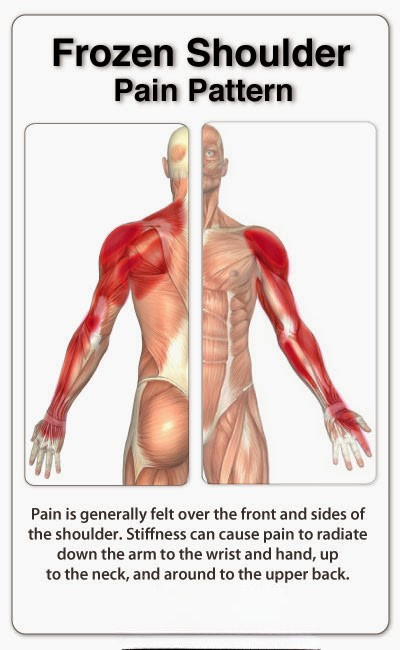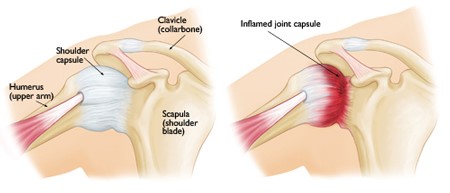What Is Frozen Shoulder?
Frozen shoulder, also known as adhesive capsulitis, is a condition that causes stiffness, pain, and a limited range of motion in the shoulder joint. Over time, the tissues surrounding the shoulder joint become stiff, scar tissue forms, and shoulder movements become increasingly difficult and painful.
This condition usually develops gradually and can take over a year to resolve. It often occurs after an injury, overuse of the shoulder, or as a result of underlying health conditions such as diabetes or a stroke.

What Causes Frozen Shoulder?
Frozen shoulder typically develops when the shoulder joint is not used regularly due to pain, injury, or chronic health conditions. Any shoulder issue that limits movement can lead to frozen shoulder if the range of motion is not actively maintained.
Common causes include:
- After Surgery or Injury: Limited movement post-surgery or injury can trigger the condition.
- Age and Gender: Most cases occur in people aged 40 to 70, with women—especially postmenopausal women—being more prone than men.
- Chronic Diseases: Conditions like diabetes and stroke significantly increase the risk of developing frozen shoulder.

How Is Frozen Shoulder Diagnosed?
Diagnosis typically involves a physical examination to assess shoulder movement. If mobility is limited, your doctor may suspect frozen shoulder. To rule out other conditions such as arthritis or a fracture, an X-ray may also be recommended.
Treatment Options for Frozen Shoulder
Allopathic Treatments
Doctors often recommend a combination of medications, physical therapy, and, in severe cases, surgery to treat frozen shoulder. Treatment approaches include:
- Medications:
- Nonsteroidal Anti-inflammatory Drugs (NSAIDs): These reduce pain and inflammation.
- Corticosteroid Injections: These are used in some cases to manage pain and swelling.
- Physical Therapy:
- Gentle stretching exercises are crucial for improving the range of motion and easing stiffness.
- Heat or ice application may also be recommended to manage pain.
- Surgical Intervention:
- If non-surgical methods fail, surgery might be performed to loosen the tight tissues around the shoulder joint.
Can Frozen Shoulder Be Prevented?
Prevention focuses on maintaining shoulder mobility, especially after surgery or an injury. Gentle, progressive range-of-motion exercises and stretching can help prevent stiffness. However, not all cases of frozen shoulder can be prevented, as the exact cause is still unclear in some instances.
“Against the above Allopathy treatments for Frozen Shoulder,” SUN-CHI HERBAL OIL AND PASTE (SHOP) Treatment provides an Alternate Treatment which does not involve NSAIDS, nor cortisone injections nor surgery.”


